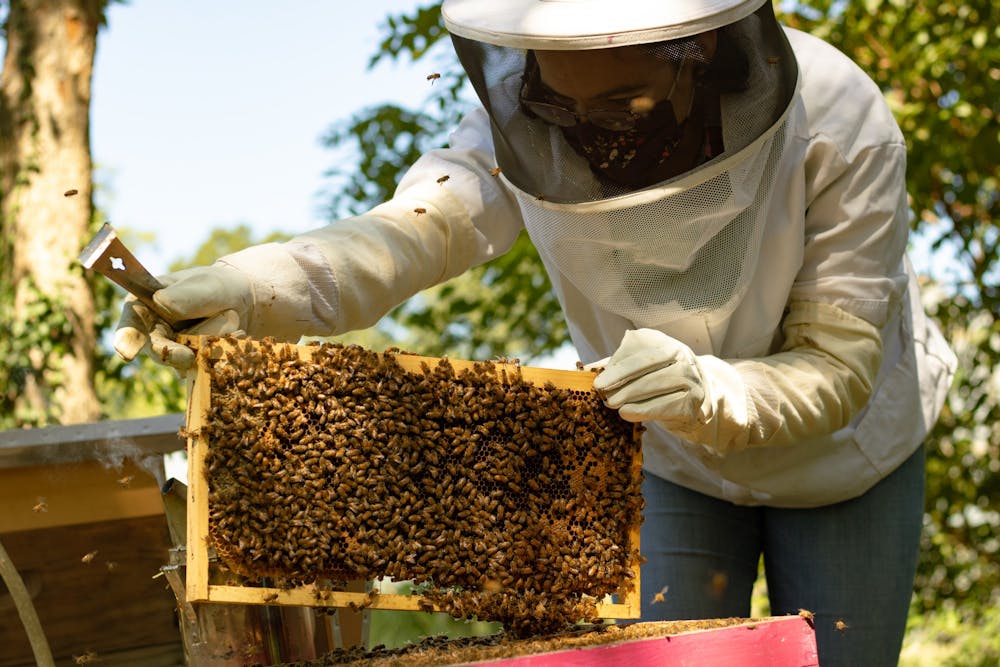Elon University senior Megan Noor is in search of a new caretaker for the bees she’s helped manage the last three years. Noor, who spent the spring taking care of bees, has been interested in bees ever since she joined the organization her freshman year.
While COVID-19 has seemingly affected and altered every inch of our lives, beekeeping for Noor hasn’t changed a bit. Noor expects to continue her hobby years down the road and will hopefully find a beekeeper, as passionate as herself, by the end of her last year at Elon.
After taking a class with the Alamance County Beekeepers Association, she was able to obtain a grant that bought her the bees that are on the Loy Farm now. Noor has continued to take care of the bees and teach interested students on how to care for them.
Recently, Noor obtained a new beehive, but one that was described to having particularly aggressive bees. Noor and her Beekeepers Association mentor suspects that these are Africanized Bees because of their aggressive stinging behavior. Noor explained that while there are good parts of Africanized Bees, like how they are more resistant to parasites and certain diseases, they are pretty dangerous to have as a beekeeper.
By killing off the current Africanized queen and replacing her with a new queen, without Africanized genes, the hive will become less aggressive as new bees are born. Noor places the new queen in a plastic cage, isolated from the other bees and it stays in there until the hive adjusts to her pheromones. Then she is released into the hive.
While the bees are indeed producing honey, Noor said that she will not be removing any because the bees are so new to the hive and they’ll need it as a food to survive the winter. She also mentions honey extracting equipment would be required but Elon does not have any of that at the moment.


